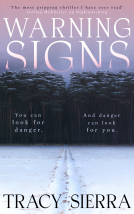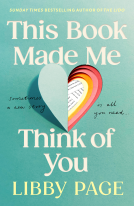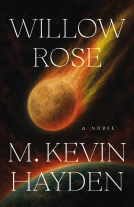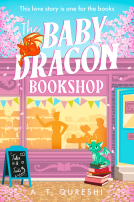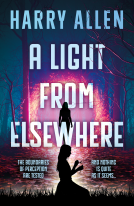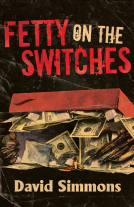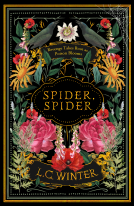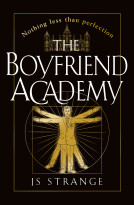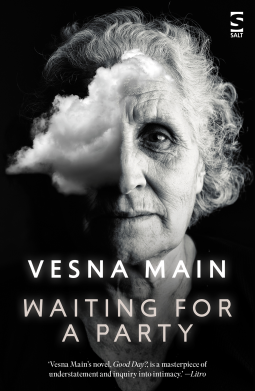
Waiting for a Party
by Vesna Main
This title was previously available on NetGalley and is now archived.
Send NetGalley books directly to your Kindle or Kindle app
1
To read on a Kindle or Kindle app, please add kindle@netgalley.com as an approved email address to receive files in your Amazon account. Click here for step-by-step instructions.
2
Also find your Kindle email address within your Amazon account, and enter it here.
Pub Date Nov 15 2024 | Archive Date Dec 08 2024
Salt Publishing | Salt
Talking about this book? Use #WaitingforaParty #NetGalley. More hashtag tips!
Description
What is it like to be married for thirty years but experience your first orgasm only after being widowed in your sixties?
How does an older woman change once she discovers her sexuality?
Could she have prevented the death of her husband? Why did she wait for an hour before calling the ambulance once she heard the thud of his body hitting the floor?
Claire Meadows, 92, a retired piano teacher, reflects on her life, while waiting to be taken to a 102nd birthday party of a friend, a prolific writer of detective stories. She has baked a cake for him, as she has done for the last seventy years.
She looks back on her marriage to Bill as a happy time and remembers without bitterness her husband’s secret visits to women whose calling cards, complete with pictures of them in states of undress, were scattered in the bottom drawer of his desk.
As a young woman she nurtured two ambitions: to become a concert pianist and to have children. When the former became incompatible with her role of a supportive wife, she accepted the situation and looked forward to becoming a mother.
But month after month brought disappointment; her kind husband was sympathetic, always ready to offer a shoulder to cry on.
Years later, she discovered the reason why she was unable to fall pregnant. And it was nothing to do with her.
Released from the bonds of her marriage, and encouraged by her feisty friend Patricia, a single mother, with few inhibitions, Claire embarks on a series of sexual encounters. She even fulfils one of the dreams of her youth in a way she could never have imagined.
As she lies in bed, waiting to be taken to the party, Claire relives the details of her affairs with relish. She continues to harbour sexual fantasies and wonders whether there is someone who could still find her desirable.
A Note From the Publisher
Good Day? (Salt, 2019) was shortlisted for the Goldsmiths Prize for innovative fiction. Main is well known as a deeply intelligent writer of experimental fiction that never leaves the reader behind.
Advance Praise
Praise for Previous Work
‘In the opening pages of Vesna Main’s short story collection we meet two women – both objects of the male gaze but under very different circumstances. The first story references EastEnders, the second the Salon des Refuses, challenging the reader’s moral perception and demonstrating the nuances of consent. Themes like these emerge throughout the otherwise disconnected 20 stories in the Croatian author’s collection. They are introduced with a quote by Alberto Manguel from his novel All Men Are Liars: “It is strange that no reader ever understood that my only subject is love.” The desire to be loved runs throughout Temptation, but there are no happily-everafters here.’ —Antonia Charlesworth, Big Issue in the North
‘Lush Library Recommends: Anna James’ Books for 2018 Another collection of short stories, this one from Croatian writer Main, these look at ideas of loneliness, passion and obsession and the sometimes gray areas between them. In these experimental stories of different lengths and styles, her characters include a prostitute turned murderer, a self-destructive book collection and a perfectionist dinner party hostess.’ —Anna James
‘Vesna Main’s novel is inventive, witty, “experimental” in style and structure, but none the less involving and powerful for that. It is written in purely dialogue form and makes a point of leaving its readers with their own share of imaginative work to do. The multiple narratives are ingeniously interwoven and the dialogue handled with a deftness of touch that keeps readers perpetually on their toes. Although she has learned some handy lessons from Nathalie Sarraute and other, mainly French practitioners of the “new novel” Vesna Main here shows herself a highly distinctive, adventurous, and formally accomplished writer whose work should find many admirers.’ —Chris Norris
Available Editions
| EDITION | Paperback |
| ISBN | 9781784633226 |
| PRICE | £10.99 (GBP) |
| PAGES | 208 |
Available on NetGalley
Average rating from 31 members
Featured Reviews
 Paul F, Reviewer
Paul F, Reviewer
Books
“And today, it is not the morning after, hah, there are unlikely to be any more mornings after, but memories surge, fighting for attention, placing themselves one on top of the other, like hands in a child’s game. She wants to hold onto them and re-live the palimpsest that is her life and she wants to remember everything. Memory is all. Memory is her life now.”
Vesna Main followed her cleverly structured Goldsmiths shortlisted Good Day with the stunning Only a Lodger … And Hardly That: A Fictional Autobiography, my favourite book of 2020, and a highly literary and yet very personal, and moving, meditation on memory and ageing.
Waiting For A Party is perhaps more conventional in form, but equally powerful in its exploration of similar themes, and confirms her place as one of our finest novelists.
The novel is narrated by Claire, aged 92 when the novel opens, who is waiting for her “son” Zach, aged 62, to take her to the 102nd birthday party of her friend, originally her husband’s friend, Martin, an author of detective novels.
As she waits, her memories roam over her life, particularly her later life. She married her husband when she was in her early 20s, he, a doctor, more than 20 years older, and her life, and her nascent musical career, was rather subordinated to his, him also treating her rather paternally and patronisingly (always referring to her “my dear, little Claire”).
He died when she was in her early 50s, following an overdose from the medicine he was prescribed after a stroke - and the circumstances of that - whether it was accidental or deliberate on his behalf, her own culpability and her rather passive reaction, carrying on talking to her friend although she suspected something had happened and delaying calling an ambulance when she found him - are one theme she returns to in her recollections.
But much concerns her life after his death, starting with her first sexual assignation, a decade after his death, when she was aged 62 (the ages ending in “2” a theme whose meaning wasn’t clear to me - symbolic or convenient to anchor events and people decades apart?). This the opening to the novel:
“Yes. She remembers the full moon, a large, luminescent paper collage against the sky, the fuliginous sky. That was the word he used, the word that stuck with her. She remembers the sharp lines of the full moon. Later, the image made her think of a picture drawn by a child, with the sky’s sootiness, threatening, noxious, replaced by dark navy blue, and a sprinkling of scintillating stars. She doesn’t remember there being stars on the night, but they entered her memory at some point and remained. That image, the transformed image of the view from the car parked to the side of Petersham Road, became associated with the man. But despite what the symbolism of the moon might suggest, she doesn’t remember him as cold and changeable. Perhaps he was but she could not tell at the time, nor could she tell that later but, if pushed, she would read the connection between him and the image that stood for him in her mind as implying art, meaning artfulness, artificiality, even affectedness, and play, as in lack of seriousness, unpredictability, randomness. Ultimately, he remained an enigma but, in her memory, art and play stand for him and for the experience they shared that night.”
Another strand concerns her unconventional family arrangement. Zach is someone thirty years her junior (now 62 - another 2). Originally they were lovers but she realised he was in denial about his sexuality and introduced him to Gabriel, a novelist, and started to think of Zach as her son (making her a Jocasta as she likes to label it), which in any case was how people tended to treat them when they dined together or booked a hotel.
“Gabriel, her lovely son-in-law. Her novelist son-in-law. His novels have intriguing covers, works of art in themselves. She prefers editions that have no pictures on the cover, classical, minimalist, à la Gallimard, or Fitzcarraldo. All titles with the same plain cover and easily recognisable. But if you are to have a cover, it ought to be designed with care and a great deal of thought. She remembers hearing a publisher saying they were proud to be making books like works of art.”
And in another weave of her thoughts she thinks of what her life has ultimately amounted to:
“Or perhaps her obituary should say she had the potential to become someone, a professional musician of some standing but she accepted her failure and she was content. Shouldn’t there be obituaries about people who accepted failure? Isn’t that more difficult than riding on success? A Nobel Prize for graceful failure and the acceptance of one’s lot, the ultimate acceptance without regret. A Booker, a Goncourt for coming to terms with one’s failure. Many entries and most well-deserving of the prize. Why not? She remembers a friend, a writer, a poet, a wonderful poet, introducing her to a poem by Yeats, yes, ‘To a friend whose work has come to nothing’. A handsome man he was. Anthony. Yes, that was his name. Could he still be around? Unlikely. Older than Martin. Very unlikely. And she remembers the lines ‘Because of all things known / that is most difficult.’ Most difficult, one’s work coming to nothing. Yes. But . . . but, yes, she had been happy throughout her life. She had a long life, she loved and she was loved. That could be mentioned in the obituary. And she had some great sex. Gosh, everyone would be envious but no one ever writes such things in an obituary. A pity. There is something warped about our hierarchy of achievements. Oh yes, she acquired a son, and what a marvellous son, when she was sixty-three. Not many women can boast that.”
Impressive and moving. 4.5 stars
I genuinely have been wishing for a book like this. I've been anticipating it so much that I decided to stop reading it at a certain point because I want this book in my hands so I can highlight, underline, and annotate all my emotions. However, I do love the explorations of sex and aging. Can't wait to have this book in my hands!
 Kerry H, Educator
Kerry H, Educator
I have read several works by Vesna Main, and I am always impressed by her writing. 'Waiting for a Party' is absolutely no exception. Fundamentally, this is a novel that is uplifting - it challenges assumptions of age and sexuality, and of love. This is what Vesna Main does best: challenges readers to think and rethink. Claire, the protagonist of this novel is 92, and the novel opens with her waiting for her ex-lover, now adopted son, Zach, to take her to a friend's 102nd birthday party. Claire ruminates on her life and her loves; her marriage and the death of her husband; her relationship with Zach; her sex life. I found it utterly moving, and I know the ending will stay with me. What a great privilege to read the ARC - my grateful thanks to NetGalley and to the publisher. Very highly recommended.
 Jo C, Reviewer
Jo C, Reviewer
"Waiting for a Party" by Vesna Main is an extraordinary novel that intricately explores the nuances of human relationships and the search for meaning. Main's narrative is both profound and accessible, capturing the essence of her characters with remarkable depth and empathy. The story centers around a group of individuals navigating their personal struggles and connections, each character vividly brought to life through Main's skillful prose.
Main’s writing shines with its eloquent descriptions and keen psychological insights, making the reader feel intimately connected to the characters’ journeys. The novel’s structure and pacing are expertly crafted, drawing readers into a compelling exploration of identity, belonging, and the complexities of social dynamics.
"Waiting for a Party" stands out for its emotional resonance and intellectual engagement, offering a rich and rewarding reading experience. Vesna Main has crafted a novel that is both thought-provoking and deeply moving, making it a must-read for fans of contemporary literary fiction. This book is a testament to Main’s talent as a storyteller, leaving a lasting impression with its eloquence and humanity.
 Susan O, Reviewer
Susan O, Reviewer
Waiting for a Party sees ninety-two-year-old Claire reflecting on her life as she waits to be taken to her dear friend’s 102nd birthday party. Martin was originally her husband’s friend. She married Bill when she was just twenty and he was in his forties, coming to the rescue of ‘my dear, little Claire’ when she fainted, a story he loves to tell at dinner parties. When he died in circumstances about which Claire seems a little confused, it took ten years for her to finally come into herself to the relief of her dearest friend, Patricia, now long gone. She knew she could look after herself despite Bill’s taking care of things for so long but had not expected the sexual awakening she enjoyed at sixty-two. As she looks back at her long life, Claire recalls its rich and varied path and the friendships that have meant so much to her.
Vesna Main’s novella takes the form of a long stream-of-consciousness interior monologue which explores many themes: love, marriage, friendship, sexuality, loss and ageing, and, of course, memory. Despite the care Claire has taken of herself, she knows she will never have the joy of being desired again, remembering the lovers she took after Bill’s death, not least, Hal, the love of her life. Her memory is clear although sometimes she confuses things that happened long ago – perhaps she should have rung 999 when she heard Bill cry out rather than talking to Patricia – making her a pleasingly unreliable narrator. Bill slowly emerges as a monstrously selfish, coercive character, despite Claire’s many reassurances to herself that they were happy. An enjoyable, skilfully crafted piece of fiction from Main which has made me want to explore more of her work.
This book!! Unexpected but very good and well written. I love stories like this, we need more! We should all live our life no matter the age we are. Sometimes we need a wild ride to help keep us alive. This book does just that. I won’t give away any spoilers but this took an unexpected turn and I was living for it! Thank you for sharing this with the world!
 Sadie R, Media/Journalist
Sadie R, Media/Journalist
A very interesting novel which is basically the meandering thoughts and reflections of an older woman as she waits to get ready for a party. Claire reflects on her marriage to her late husband Bill, her friendship with Patricia, who has also now died, and the various sexual encounters she has had with other men over the course of her life.
It's fascinating as we feel we are being let into someone's most innermost and private thoughts. Claire is now 92 and she wonders a few times whether anyone would still find her sexually attractive. Despite all the assumptions and prejudices about age, she still longs for sexual love, which comes across somehow as quite sweet.
It becomes clear over the course of the book that her marriage to Bill wasn't great, and that she's still working on processing that fact. Bill got together with her following a tragedy with his previous wife, and it seems he saw her as someone to look after rather than love as an equal. Their sex life wasn't great - Claire doesn't recall having an orgasm with him, although also thinks maybe that isn't quite fair. But as he was older, she didn't feel confident enough (or have the knowledge) to express what she really wanted sexually.
The descriptions of her sexual relationships with men, and the jealousies this provoked in some of her friends, are very readable. It's also a poignant tale of the loneliness that can grow as people age, and so many of the people who were in their lives have died. Claire thinks several times that she really misses Patricia, who was obviously a big influence and support for her.
We are left wondering about Bill, and whether Claire actually got some level of 'revenge' on him or not. It seems that as he grew ill he became more cantankerous, insulting Claire and putting her down.
There will be bits of Claire's experiences that will resonate with everyone, and it's interesting to read about her trying to process and comprehend her life, and decide how to interpret it. This is quite a poignant but hopeful book, and it was great to have an older person as the sole focus of an entire novel. I read it in just a couple of days, and would definitely recommend it.
 Emma P, Reviewer
Emma P, Reviewer
This is my first experience of Vesna Main's work, I am eager to explore previous publications now. As the title suggests, as 92-year old Claire, waits for her lift to the party of a friend, her mind reflects and mulls over events of the past. The meandering journey this takes feels realistic, often she returns to the same scene a couple of times adding more / different details each time. The characters around her are brought to life and she replays events that touched them all. Absorbing, heartfelt and utterly wonderful.
**Book Review: _Waiting for a Party_ by Vesna Main**
_Vesna Main's_ _Waiting for a Party_ is a thought-provoking exploration of identity, displacement, and the longing for connection. Through sharp prose and a keen eye for detail, Main delves into the intricacies of cultural and personal narratives, capturing the complex emotions of those who find themselves on the periphery of society.
The novel’s strength lies in its vivid character portrayals and its ability to bring to life the often-unspoken realities of belonging and isolation. Main weaves a tapestry of poignant moments, showing how the wait for acceptance and understanding can be both universal and deeply personal. _Waiting for a Party_ is an evocative read that resonates long after the final page.
 Reviewer 1094843
Reviewer 1094843
Goodness, Vesna Main sure can write. This is first piece of Literature (and that should certainly be with a capital L as it deserves to be classed as such) by Main that I have read, and as I was half way through I was already looking at her back catalogue for my next read. To say I was utterly absorbed is an understatement, her writing is just so beautiful and I felt connected to her characters as if I knew them personally.
This is a book narrated by Claire Meadows, whom we meet at 92 years young, preparing to go to a birthday party of a friend, Martin, aged 102. The book then meanders back and forth, reminiscing through Claire’s life and most intimate experiences. Through this form, we experience Claire’s marriage, friendships, relationships both conventional and unconventional, her loves, her sexual fantasies and sexual experiences (including her first sexual awakening at 62!). The writing is tender, frank, surprising, sensual, sometimes graphic, but always beautiful. It is a book that I know I will re read.
Thank you so much to NetGalley for an ARC - I feel honoured to have read this prior to publication.
 Jim S, Reviewer
Jim S, Reviewer
On the lowest survey estimates, women think about sex ten times a day (about half as much as men) and Claire Meadows, who tells this story, seems to score above the average – although she is 92 years old!
The book is essentially a monologue about her life, while she waits to go to a party being held for her friend who is 102! The main event in the story, or perhaps the trigger for the rest of it, is her first real climax ten years after the death of her husband and the sexual experimentation which followed on from that. She has a flirty friend called Patricia who encourages her!
However, this is book about more than sex. It has a lot to say about how women’s lives at all levels are often managed by men, their past histories and social expectations. It’s clever because it isn’t an angry book about these things: they are just how it was.
It’s also entertaining in its descriptions of how things have evolved, often by chance, into a satisfactory life at 92. Claire has a family of a sort and good friends and, in that sense, it’s a celebration of life – even at that great age.
And, if you think that life ends at sixty, or even seventy, this story may make you think again!
An exceptional book, written in the voice of a 92 year old woman. Claire is waiting to be taken to the birthday party of a 102 year old friend. As she waits, her mind wanders to her marriage and subsequent romances after her husband Bill died.
Claire has a contemporary voice and the book doesn't come across as nostalgic ramblings. Instead, there are astute observations and learnings about relationships for us, the reader.
Claire married Bill, 20 years her senior, as a young woman, and their roles were very traditional. He constantly referred to her as "my dear, little Claire" and it's clear that as she reflects on the relationship, and what her friend Michael has since said, he didn't see her as an intellectual equal. She can't bring herself to criticise Bill so says that she says that he gave her the stability she needed, as an orphan. She doesn't talk much about being childless and how Bill had had a vasectomy after his child with his first wife died. Instead, she has "adopted" an adult man as her son, after they had an ill-fated fling.
Claire dives into relationships and one night stands after she is widowed, and is wistful that she won;t ever experience physical love or romance now she is in her 90s. "She has realised that regardless of age, everyone needs love, or, at least, everyone dreams of being loved. But when she considers that, the word yuck comes to mind and she admits to herself she would be ashamed to say the sentence about the need for love in front of anyone else for fear of sounding as a heroine from a pulp fiction novel. "
I loved the book and Main's writing. Thank you for bringing us a voice so clear and loud to our attention from an extraordinary generation.
 Marion M, Reviewer
Marion M, Reviewer
The blurb got me with this one but I didn't know what to expect. This book is a moving, thought-provoking, raw and (at times) graphic reflection on life as a whole. Showcasing the many facets of a woman's life and her many roles, it explores how she is many things to many people but rarely all for herself. This isn't my kind of book, really, and I had to take my time with it, but it was beautifully written and will stay with me for a long time. I'm left remembering a dear friend who was already an elderly widow when we met - she was a complete and whole person as I knew her, and yet had lived many lives before I'd taken breath. The main characters in her story were memories before I had heard of them.
Just a really good book.
Waiting For A Party by Vesna Main
👵🏻 Refreshingly unique
👵🏻 Sexual liberation at 60+
👵🏻 Friendship
Claire is 92. She’s waiting to be collected to go to a party. She’s thinking back to the most formative years of her life. This is not a coming of age novel. Claire’s voyage of self discovery takes a steep curve at 62, after the death of her husband.
I was drawn to the premise of a woman in her later life finding sexual liberation after a particularly vanilla marriage. I got that (in spades) but this novel offers so much more.
Main’s character writing is outstanding. These are well developed, complex and ultimately loveable characters who form beautiful, sometimes unconventional, relationships. This book is just as much about Claire’s relationship with her best friend or her interaction with the act of remembering as her (explicit) sexual exploits.
I read this compulsively and have thought about it often since. I think Claire is a new favourite character and I am grateful to Main for writing from such a refreshing perspective. I would LOVE to see this on the Women’s Prize Longlist.
 Gemma K, Educator
Gemma K, Educator
This is my first reading of Vesna Main and I found it surprisingly moving and thought provoking. I really enjoyed Vesna's writing and will look out for more novels by her. Highly recommend.
In Waiting for a Party, we meet Claire, a 92-year-old woman who finds herself reflecting on her life one Sunday morning as she anticipates her friend Martin's upcoming 102nd birthday party at his retirement home. As she reminisces, she grapples with the weight of her past—her unfulfilled dream of becoming a concert pianist, her lost opportunity for motherhood, and the friends and lovers who have largely departed from her life. The shadow of her husband’s death looms large as she confronts the role she played in it: was it an accident, a suicide, or something she inadvertently facilitated? The conflicting emotions she experiences—fear, relief, guilt—add layers of complexity to her memories.
After becoming a widow, Claire embarks on a journey of self-discovery, exploring her sexuality in a way she never could during her marriage at twenty-two. While most of her fleeting encounters leave her feeling unsatisfied, a chance meeting at a concert with a man of intriguing appearance ignites a memory that continues to excite her long after his passing.
Claire reflects on her marriage to a man over twenty years her senior, a relationship that shaped her into someone who believed she was lost, allowing him to make all the decisions for thirty years. Despite asserting that she was happy in her marriage, she frequently questions the validity of her memories, recognizing the difficulties in distinguishing between what truly happened and what she imagines. Yet, her desire for love and intimacy remains vibrant, highlighting the universal longing for connection that persists even in old age.
The narrative takes a poignant turn when Claire’s adopted son Zach and his partner Gabriel arrive earlier than expected, only to learn that Martin has passed away that morning. Despite their grief, the trio decides to embark on a journey to the Uffizi in Florence, transforming their mourning into a quest for self-discovery and fulfilment.
Waiting for a Party is a moving and thought-provoking exploration of a woman's multifaceted life and her roles throughout it. It delves into themes of self-identity, desire, and the complex nature of memory, capturing the essence of what it means to be many things to many people yet rarely to oneself. This raw and at times graphic reflection on life invites readers to contemplate their journeys, making it a compelling and enriching read.
Read more at The Secret Bookreview.
 Reviewer 794565
Reviewer 794565
This is an unusual and original book. Claire is 92, and reminisces about her life, and her friends, many of whom have died. She is waiting to go to Martin's 102nd birthday party. He has been her friend and neighbour since the start of her marriage to Bill, his friend.
Claire and Bill were married for 30 years, but he was much older, and controlling, and kept many secrets from her. Claire says she loved Bill, but it feels like there is a lot of resentment there.
After Bill died, Claire, at 62, started meeting new men, and we hear about how she embraces her independence, her new sexual freedom, and the wonderful lovers in her life. It is refreshing to read about sex between older people who no longer have beautiful bodies, and the sex scenes are very well written.
I really enjoyed this book. Recommended
 Colin M, Reviewer
Colin M, Reviewer
This is a stunning book. The writing is gorgeous and confident, with insightful observations woven into elegant prose. The novel follows a withheld woman who, after the death of her husband, embarks on a journey of sexual and mental liberation. Recounting this journey from the perspective of her nineties, the protagonist offers a poignant reflection on desire, loss, and the enduring power of the human spirit. I will certainly be keeping an eye out for more of Vesna's work!
This is the story of a 92 year-old woman as she reminiscing about her life and the men that she is loved. She’s about to go to the birthday party of an old friend and neighbour who is 102
The author has a beautiful flowing writing style and this novel probably sits best within the literary novel category.
The book jumps about a bit at the beginning so it’s a bit difficult to tell what stage in the woman’s life has been described. However, as I settle down to reading it, things became clearer.
The author describes our characters perfectly and you feel that you have a good understanding and particularly of the main character by the end of the novel.
The sex scenes are remarkably good hadn’t really expected them I found that they were well written and evocative.
This is a really beautiful novel. I suspect that it will not be a great seller, but I personally really enjoyed reading it and spending the time with the characters.
The book touches some sensitive subjects such as potentially emotionally abusive early marriage with sensitivity and poise
I read a copy of the novel on NetGalley UK. The book was published in the UK on the 15th of November 2024 by salt publishing
This review will appear on NetGalley UK, Goodreads, StoryGraph, and my book blog bionicSarahSbooks.wordpress.com. It will also appear on Amazon UK.
 Mandy J, Reviewer
Mandy J, Reviewer
Claire Meadows is a retired piano teacher, a widow, and is waiting at home to get a lift to her friend Martin’s 102nd birthday party. As she waits she looks back over her long life and reminisces about her past. Now 92, she has a lot to reflect on. The stream of consciousness narrative lets the reader share her inner world and it’s a poignant, though never sentimental, exploration of an older woman’s quest for identity and fulfilment, which delves into her sexual desires and fantasies, an aspect of her life she was able to indulge after her husband's death, something that that is rarely tackled in fiction about old age. Candid, honest and insightful, I found it a truly compelling read, beautifully and empathetically written, and Claire is a character who will long remain with me.
